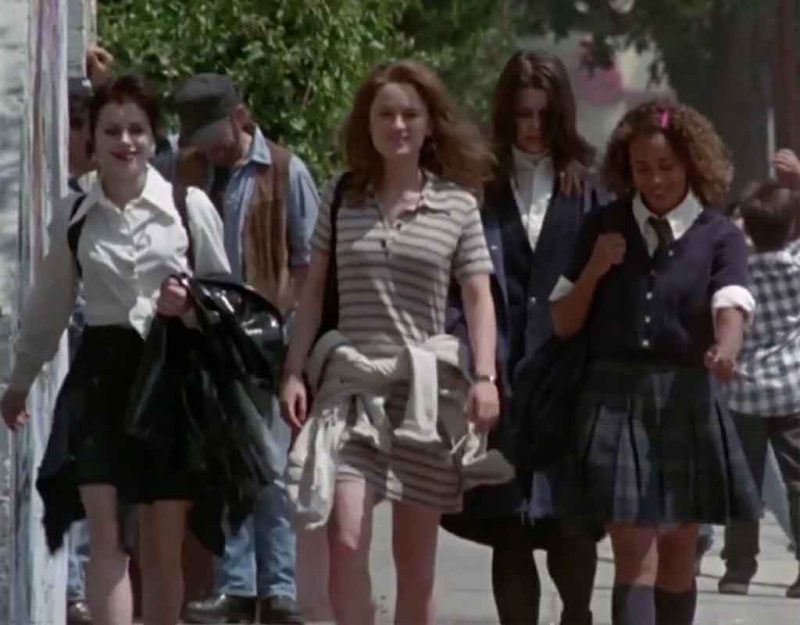Why Do Women Get Paid Less?
We find ourselves a thousand years into the Revolutionary Narrative which came about after European civilization finally got wealthy, fought off some invasions, and then found itself beset by internal conflicts caused by the fact that it could no longer simply exile or deport its less than valuable citizens.
Nobles of the previous age had already observed that, thanks to the hygiene and organized prosperity of permanent agricultural civilizations, the dumbest among the society were breeding like rabbits because they literally put no thought into it. They liked to have sex; this resulted in children.
The dumber members of society constantly resented those above them and simultaneously had no understanding of what such people did. As a result, like every floor worker in a factory or food service drone, they believed they knew how to run their society better than their natural leaders and began overthrowing them.
During this time Europe weathered more catastrophes than have faced any other race. Not just invasions of Moors, Huns, and Mongols but plagues, famines, and internal struggles between European nations blighted the continent. Having emerged from the fall of two great empires — Athens and Rome — medieval Europe struggled to find its footing.
The Revolutionary Narrative however never takes a break. It tells us that we are all equal, therefore any results but absolute equality are the result of bad discriminatory and bigoted people interfering with the natural equality. For this reason, we get a lot of wondering why groups do not perform identically, including womynx:
In her 2021 book, “Career and family: women’s century-long journey towards equity,” Goldin explored the effect of what she termed “greedy work” — jobs with inflexible or unpredictable schedules that pay better.
Through her research, Goldin determined that women were more likely to abandon such jobs, while men are more likely to be enticed by the higher pay.
“Under these conditions, women will shift to a firm with less demanding hours or leave the workforce,” Goldin said in a 2021 interview with Harvard Business Review.
In other words, men serve in the demanding jobs more than women, and therefore get paid more because of market forces, since the rarer something in demand is, the more expensive it is. If every worker put in the long hours and dealt with the insanity, those salaries would naturally equalize.
On top of that there is stereotype threat which apparently drives women away from careers in which failure is a constant companion, like science and political writing:
This is the stereotype effect: we observe a drop in performance in situations where individuals fear confirming a negative stereotype attributed to the group to which they belong. This is known as stereotype threat.
In countries where women’s access to education is not in question, stereotypes play a role in the choice of disciplines. It also has an overall impact on test results, according to the mechanism known as stereotype threat described above.
As a result, the percentage of women in France’s top scientific schools is very low, particularly at ENS-PSL (École normale supérieure), as described in the study: “Girls + Sciences = an Unsolvable Equation?”. We were particularly struck to find how commonplace gendered appreciation was in teachers’ school reports. Specific teacher training is therefore desirable to limit these biases.
Add these two together, and you get a complete picture where the environment of the workplace is simply too brutal for women, who fear painful loss in addition to facing the trauma of constant long hours:
My recent research suggests that the reason women are less willing to take risks than men is because they are more sensitive to the pain of any resulting loss.
I realize of course that when people read about claims regarding sex differences in behaviors or psychological attributes, their immediate reaction is to list people they know—including themselves—who don’t fit this pattern.
But these studies are about averages, and there is a huge amount of overlap between the distributions of male and female risk-taking. And there will indeed be large numbers of women who act more riskily than the average man.
Interestingly, as all these sources come into alignment, it seems clear that what was explained as “discrimination” now has another source: the workplace is simply miserable in fields except those to which women drift naturally.
Even more, most of them have no interest in getting dug in to a career since they are about to embark for a two-decade more important career, namely having and raising children, which strikes me as stressful in a different way than jobs will ever be.
While obviously jobs could be radically improved, since most of what is done at them serves no actual purpose other than making other people think the job is being done, as a bigger question we might ask what the world would look like without working women.
In particular, salaries would be higher as they were before the 1965 crack-up in wages, simply because if you halve the workforce, the remaining workers are more valuable, and nonsense jobs have to go away because there is not an excess of idle people to fill them.










